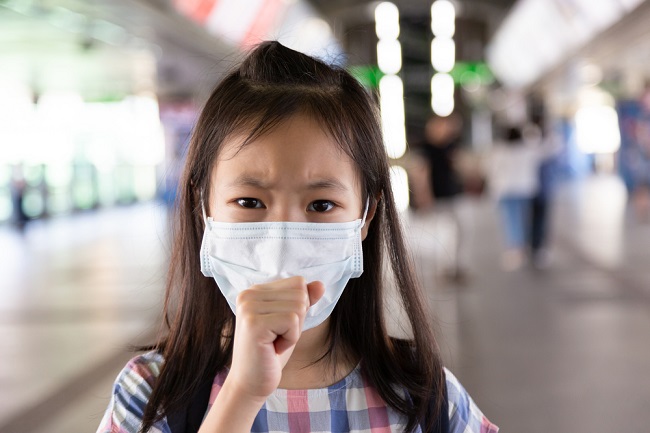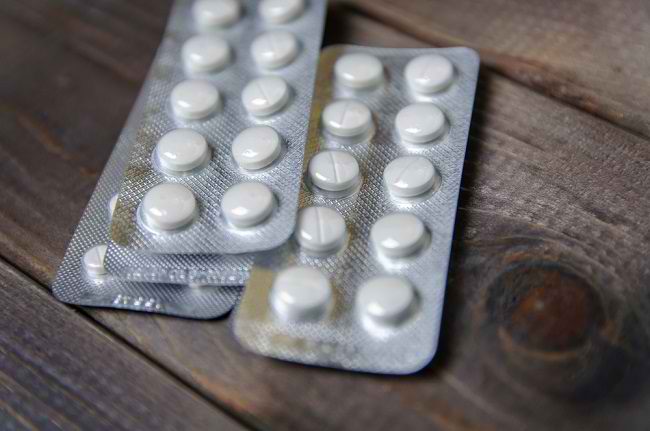Many parents panic and rush to give medicine once their baby is sick. In fact, some of the health problems experienced by babies do not always require medication. Therefore, first read the explanation below before giving medicine to babies.
Medicines do function to help heal someone's illness, including children and babies. However, giving medicine to babies cannot be done carelessly. If not given correctly or the dosage is not appropriate, this can actually endanger the health of the baby.

Problems in babies that don't always need medication
Here are some conditions that may not require giving your baby medication:
1. Colds
Colds are a fairly common health problem, including in babies. Giving cold medicines, such as decongestants and antihistamines, is generally not recommended for infants, because of the risk of dangerous side effects.
Colds in babies usually get better on their own in about 1-2 weeks.
To speed up healing, give your little one adequate rest, away from dust and pollution, such as cigarette smoke, and give more breast milk.
If your little one is over 6 months old, you can also give him a warm drink. In addition, Mother can try dripping or spraying a saline solution into her nose, so that it is easier for her to expel mucus in her nose.
2. Cough
Coughing is the body's natural response to expel germs, viruses, mucus, and dust that have accumulated in the respiratory tract. Therefore, when the baby has a cough, the mother does not need to immediately give her cough medicine.
Just like handling a cold, you can also let your little one get enough rest, give him more breast milk or formula, and keep him away from dust and pollution to speed up the healing process.
3. Fever
Fever in infants generally occurs when the baby's body is being attacked by germs or viruses. However, in addition, fever can also appear as a reaction to immunization side effects.
Fever in infants is usually harmless, if he still seems calm, willing to suckle, and active. However, if a fever occurs in a baby under 3 months old or is accompanied by other complaints, such as shortness of breath, weakness, refusal to breastfeed, a rash appears on the skin, or seizures, this should be treated by a doctor, yes, Bun.
4. Diarrhea
When a baby has diarrhea, he will defecate more often and the texture of his stool will be watery or watery. As long as it doesn't cause other symptoms, some cases of diarrhea in babies can get better on their own without the need for medication.
As long as your little one has diarrhea, you can give him more breast milk and electrolyte drinks, if he can already eat solid food.
However, if the diarrhea experienced by the baby is accompanied by symptoms of vomiting, weakness, fever, black or white stools, bloody stools, or refusal to breastfeed, especially to the point of causing signs of dehydration in the baby, this of course must immediately receive medical attention. in the hospital.
To treat diarrhea accompanied by dehydration in infants, the doctor will provide drugs and intravenous fluids to replace lost body fluids.
Guide to Giving Medicine to Babies
Ideally, before giving any medicine to babies and children, parents need to consult a doctor first. After that, if the doctor's evaluation results show that the baby does need treatment, there are several guidelines for giving medication that need to be understood, including:
- Tell the doctor, if the baby can not take the drug. For example, when he always vomits every time he drinks or eats. To treat this, the doctor may give you anti-emetic drugs or give drugs by injection or infusion.
- Always read the instructions for using the drug before giving it to the baby. Some medications should be taken on an empty stomach, while others are more effectively absorbed by the body when taken with other foods.
- Consult first before giving over-the-counter medications to babies.
- When buying drugs, make sure parents understand detailed information about the procedure and dosage of medication. Always ask a pharmacist or doctor if something is not clear.
- Ask your doctor about possible drug side effects, such as drug allergies, as well as the effects of interactions with other drugs, especially if your baby is on certain medications.
- Make sure that the instructions for using the drug are also listed for the dose for the baby. If not, it could be that the drug is not right for the baby.
- Check the expiration date. Discard immediately if the age of the drug has exceeded that date.
- Avoid mixing the drug with other drinks other than water, such as milk, juice, or herbal medicine, because it can affect the performance of the drug.
How to Give Medicine to Babies Correctly
Here's a guide to giving your baby the right medicine:
- Wash hands before preparing or administering medication.
- If the medicine given is in liquid form, shake it before opening the package. This is to ensure that no precipitate remains in the drug.
- Use a tablespoon or teaspoon, if the drug does not provide a self-measuring device and the information is listed in the instructions for using the drug.
- Avoid reducing or increasing the recommended dose of the drug.
- Some drug doses are based on the baby's weight and age. Know with certainty his weight before determining the right dose.
- Do not be mistaken in distinguishing between the size of 'tablespoon' (tablespoon) or tablespoons (Tbsp/T) with 'teaspoon' (tsp) or teaspoons (tsp/t). In general, there is no medicine for babies that requires a full tablespoon.
- Avoid giving medicines that are not suitable for infants and children, such as aspirin.
- Observe how many times the drug should be given. For example three times a day, twice a day, or every two hours. Avoid giving them all at once.
After opening and using the medicine, read the instructions for storing the medicine. Usually the drug needs to be stored in a place that is not exposed to direct sunlight, for example in a dry and cool place.
Infants are much more susceptible to the effects of drugs than adults, especially if the dose and timing of medication are not correct. Giving over-the-counter medicines to babies, if used incorrectly, can also pose a dangerous risk to the baby.
Immediately take your child to the doctor, if his condition gets worse or side effects occur after being given the drug.









